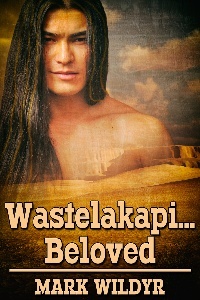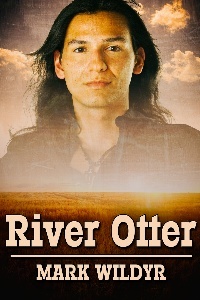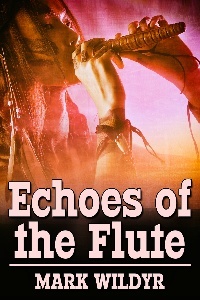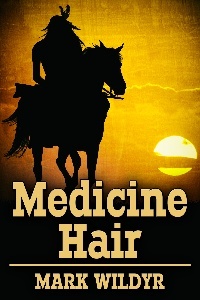Far from the world he knows, he’ll find a home. Among strangers, he’ll find acceptance. And in the arms of an unexpected man, he’ll find love.
Young Billy Strobaw comes West to escape the stigma of his Tory family. In the Dakota Territories, he encounters the Yanube warrior Cut Hand. Billy’s attraction to the other man is as surprising as the Yanube perspective on same-sex love. Unlike Europeans, the Siouan tribe celebrates such unions. Billy and Cut Hand can live as partners and build a life together, which Billy agrees to do.
As Billy struggles to acclimate to a very different culture, quickly discovering the Yanube have as much to teach him as he has to impart to them, a larger struggle is brewing. The white man is barreling through the Great Plains, trampling underfoot anyone who stands in his way. As a leader of his people, Cut Hand must decide whether it will be peace or war.
In a historical romance taking place against the epic backdrop of the early American West, where a single spark can ignite a powder keg of greed, lust for power, and misunderstanding, one man must find his place in history and his role in the preservation of all he has come to value.
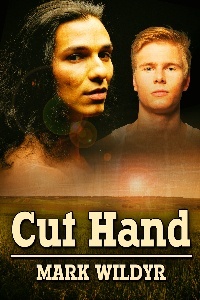
Yawktown had grown to the point where the city fathers saw fit to change the name to Yanube City. My friends from the old days were now men of substance, and I was about to use their influence to the full extent of my ability. Since it was late when I arrived, I took a room at the Rainbow Hotel, as the establishment was now called, and bathed in one of their new baths. Each floor had a fully equipped bath with a zinc-lined tub.
Early the next morning, I called on the land office and made certain the title to Teacher’s Mead and the one hundred sixty acres around it was correctly entered. The government surveyed some years back, permitting me to exercise my right of purchase under the 1841 Pre-Assumption Act. Now I made a bid for contiguous land. If no one contested my offer, I would own four thousand acres of land lying astride the Yanube River. I bid the minimum provided for by the compromise, virtually destroying my account at the bank. It seemed politic to pacify Banker Crozier, whose influence I would need, by agreeing he could draft most of the cost from my account with the bank at Fort Ramson. Beyond this, I had to surrender a portion of my gold and silver coins to satisfy the bid.
The most crucial part of my scheme rested with the next call. Abraham Kranzmeier, the Jewish tailor, now had four young seamstresses and two sons working for him. Despite his age, he arrived at the shop each day to inspect every stitch that went into garments made in his name. I had given him custom over the years, and we held one another in esteem. He flicked a bushy gray eyebrow when I asked to speak in private but wordlessly led me back to a room furnished like a comfortable parlor in a home. He offered a cup of expensive imperial tea with lemon and settled back to stroke his long beard and listen.
“Abraham, I come to you because if anyone in this town understands the yoke of oppression, it is you. I intend to do something not exactly proper, not for my own personal gain, but for the protection of people who will need it in the years to come.”
I paused for him to volunteer some comment. “I heard what happened to your Indian family. You come on behalf of the survivors.”
“I have a beautiful piece of ground at Teacher’s Mead. When my time comes, I want to make certain it goes to my intended heirs.”
The old man took out a crooked, elaborately carved pipe, and for one minute I thought he was going to offer it in ceremonial observation. “So you see the same future I do,” he said, settling the pipe comfortably in the corner of his mouth.
“Indians are going to become the Jews of America,” I answered. “They will be denied ownership of their own land, citizenship in their own country, and forfeit their very lives if no protection is offered. I seek to provide this protection to a few of them.”
“You want to leave them your property.”
“And my testament will not be honored unless I fix things a little. So I come to a respected member of a community with a long history of surviving hostile systems.”
“In other words, you come to an old Jew. An old Jew whose nephew, although he bears a gentile name, is the clerk for this territory. Tell me what you need.”
I wanted a record of a marriage between me and Butterfly, a woman of the Yanube band, in the spring of 1834, some two years before the actual event, and a marriage license to go with it. I wanted a record of birth and a birth certificate for William Cuthan Strobaw as issue from this marriage for any day in December 1835, plus a baptismal certificate in the Methodist Church, one of the more active in the area. The old man listened and then named a sum, explaining it was not payment to him but the cost of having the items created. I handed over some of my hoarded gold coins and asked him to expedite the process. I wanted as much time between this and my own demise as possible. Time often perfected titles.

